
by Melanie Oda (Japan) | Apr 17, 2015 | 2015, Awareness, Cooking, Cultural Differences, Culture, Domesticity, Expat Life, Eye on Culture, Family, Food, Health, Home, Identity, International, Japan, Life, Life Balance, Living Abroad, Maternal Health, Me-Time, Motherhood, Multicultural, SAHM, Social Equality, Stress, Time, Traditions, Womanhood, World Motherhood
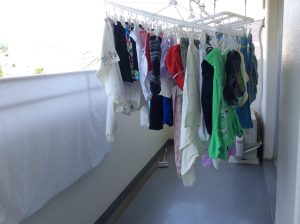 I start my morning here in Japan the same way every day: by cleaning out the drain trap.
I start my morning here in Japan the same way every day: by cleaning out the drain trap.
Not very pretty, I suppose, but I’ve learned the hard way that it needs to be done frequently and well. The drain traps here in Japan are metal mesh to prevent food from going down the drain. They get gross very quickly.
I’m pretty sure I started out my days when I lived in the US with a cup of coffee, which seems quite glamorous by comparison!
In spite of our gains in education or employment opportunities over the last century, much of our time as women gets taken up by mundane household tasks like this. Women all around the world are doing the same kind of things: laundry, food preparation, cleaning, child care, though in very different ways.
It makes me curious. How much of your time gets spent on “daily chores?” What kinds of things do you need to do every day? Do you do them alone, or do you have help?
Perhaps it is a boring topic, but for comparison I thought I would share a little bit of what housework is like here in Japan.
Laundry gets done daily in most families. We have washing machines, but most people don’t have dryers. In a country with cold winters, humid summers, and a rainy season, keeping up with the laundry feels like a daily battle! When the weather is not cooperative, laundry gets hung from curtain rails or any other overhang that can be found indoors. We have to bob and weave our way around the house. Imagine that Catherine Zeta Jones movie, but with laundry instead of lasers.
I do the shopping most days as well. This is quite common here in the greater Tokyo area, where storage space is limited and many people do not have cars to allow buying in bulk. Milk is sold by the liter; laundry detergent in 500ml bottles. The biggest shopping challenge is buying rice, which comes in 5 or 10kg bags.
I need to dust and vacuum every day. This is much more often than we did in the US growing up. I’m not sure why Japan is so dusty. Could it be the tatami floors? The single pane windows? The small living space? And more important than why, how can I make this dust accumulation stop?
Japanese cuisine seems to be gaining in popularity around the world. Many Japanese people eat a full meal in the morning (though this is slowly changing,) as well as at lunch and dinner. Japanese bento are also getting a lot of attention on the Internet for being nutritious as well as visually appealing. Overwhelmingly, the cooking is done by women. (Personally, since my children’s lunch is provided by the school, most days I cook twice.)
Like most families here, we have a gas stove-top, a rice cooker, and a microwave combined with an electric oven for cooking. My mother-in-law has a separate gas burner that can be placed on the table for doing things like sukiyaki or okonomiyaki, foods that are consumed as soon as they are cooked by the family from the same dish. My children are still a bit too small for me to attempt this at home.
I think many of us around the world are doing these same things, but the nitty-gritty of how we get it done and how often we do it are different. I can’t help but wonder what housework says about the values of the culture.
In the US, for example, many families take pride in a well-decorated home. In Japan that is much less important. (Perhaps because many women are spending all that time dusting and dodging laundry….)
What kinds of things are included in your daily duties? How do you feel about doing them?
This is an original post to World Moms Blog from our writer in Japan and mother of two, Melanie Oda.
The image used in this post is attributed to the author.
If you ask Melanie Oda where she is from, she will answer "Georgia." (Unless you ask her in Japanese. Then she will say "America.") It sounds nice, and it's a one-word answer, which is what most people expect. The truth is more complex. She moved around several small towns in the south growing up. Such is life when your father is a Southern Baptist preacher of the hellfire and brimstone variety.
She came to Japan in 2000 as an assistant language teacher, and has never managed to leave. She currently resides in Yokohama, on the outskirts of Tokyo (but please don't tell anyone she described it that way! Citizens of Yokohama have a lot of pride). No one is more surprised to find her here, married to a Japanese man and with two bilingual children (aged four and seven), than herself. And possibly her mother.
You can read more about her misadventures in Asia on her blog, HamakkoMommy.
More Posts

by Jennifer Burden | Apr 16, 2015 | 2015, World Bank, World Moms Blog, World Voice
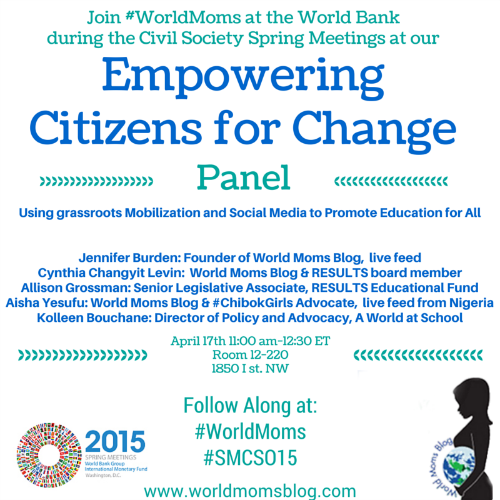
This week, World Moms Blog was invited to take part in the World Bank/IMF Civil Society Meetings in Washington, DC. I had the opportunity to be there Tuesday and Wednesday, and World Mom, Cynthia Levin, took over for Thursday and Friday.
The World Bank has a long history of lending since Breton Woods in 1944 when it was established after World War II. But, over the years it has also lended to projects that have had a negative impact on the local people in developing nations. And after years of protesting the World Bank, anthropologist and Partners in Health cofounder, Dr. Jim Kim, has been at the helm of the bank as President for the past 3 years.
The protests have now been brought off the streets and members of the public have been invited inside around the World Bank and IMF fall and spring meetings to represent the people in the countries where the bank lends. So, all is perfect now, right?
Development isn’t easy. There are still challenges when it comes to lending and looking out for the societies receiving the loans. The topics are intricate in the bank’s mission to end poverty and are reflected in over 50 different panels that are being presented at the meetings.
Here are my top 10 takeaways about the first two days of the Civil Society Meetings…
1) Not everyone here is from DC. The Civil Society Meetings attract and bring in a host of civil society members across continents to come and join in the conversations around poverty. In fact, a large portion of the meeting panels were pitched by civil society members. They are helping carve out the bank’s future practices (safeguards), providing new points of view by representing the people from their home countries and networking with their counterparts abroad to trade best practices and solutions.
2) Dr. Kim, World Bank President, says that the world can end extreme poverty by 2030. In 1993 41% of the world’s human population was living in extreme poverty (under $1.25 per day). With the help of the UN’s Millennium Development Goals (Do you remember our #Moms4MDGs campaign last year?) that percentage has been reduced to 14% in 2014 (data is still coming in to confirm this projected number). Statistics are according to the World Bank.
3) Some of the people on the planet who may be most affected by climate change know nothing about it. In the Pathway to Paris working panel on climate change, civil society members from Hoduras and Bolivia explained that when your focus is that you need to eat, climate change is not on the minds of people, but how to get food is. And they stated that when people are aware of the climate change problem, they expect that it is a problem to be dealt with by the developed world.
4) The consequences of radicalization and violent extremism in fragile societies is a popular emerging topic of interest among civil society members. There was a packed crowd (think Tokyo subway car) in the panel on the consequences of radicalization and violent extremism, and I didn’t get in! I really wanted to listen in on the conversation, but noted it was a high priority on civil society’s agenda as something that needed to be changed.
5) To reach the goal to end extreme poverty faster, the World Bank sees the importance in partnering with faith-based organizations. There were several panels on Wednesday, including a flagship event, that included members of the world’s largest religions discussing their motivations to help the poor from their faith. The key takeaway was that although the World Bank is a secular organization, there are benefits to ending poverty faster by working together with faith based organizations.
6) Human rights has not been written in as part of the World Bank’s safeguards and civil society is protesting. A man from the LBGT community, chased out of his home country of Uganda, asked the World Bank executive directors why they continue to lend to countries who do not value the rights of their people. Also, during a round table discussion with executive directors from the World Bank and the IMF, a woman from South Africa asked for a moment of silence for children who had died from the impact of a World Bank development project (I do not know the details of the project she was referring to.). Afterwards, a group of civil society members stood in unity with her wearing or holding yellow shirts demanding human rights be written into the bank’s safeguards. Civil Society members are standing up for their rights and joining the conversation to try to change bank policy.
7) The smallest member of the World Bank Group is MIGA. MIGA stands for Multilateral Investment Guarantee Agency and has only about 33 employees and lends in the the most fragile states. For example, they were lending in Afghanistan when bullets were flying!
8) The official twitter feed for the IMF/World Bank Civil Society Meetings is “SMCSO15”. This is according to the postings in the meeting rooms at the World Bank. Twitter also self-populates with another hashtag being used, “SMCSO2015.” The twitter feed picks up on the flagship panels that are broadcast live to the public, which makes the online conversation awesome around ending poverty. You can check out our post from earlier this week on those flagship panels that have live feeds.
9) The open meeting policy at the World Bank allows the bank to hear and anticipate the effects of their lending in ways they haven’t in the past. Could you imagine if every business had this type of open meeting policy where civil society could pitch panels on the way in which it lends to better society? Although born out of unfair lending practices and people protesting the streets of the past, this model is ground-breaking. And the world needs ground-breaking when it comes to getting people out of extreme poverty and achieving the sustainable development goals of 2030.
10) World Moms Blog’s panel on grassroots advocacy and social media in support of universal education is a go! On Friday, April 17th at 11am ET, World Moms Blog’s Cynthia Levin (USA & also of RESULTS), Aisha Yesefu (Nigeria) and myself, Jennifer Burden (USA), will team up with Allison Grossman of RESULTS and Kolleen Bouchane of A World at School to discuss ways in which civil society members can ignite change in getting more children into the classroom. Today, over 57 million children of primary school age on the planet are not being educated. The topic is vital and also very timely with the passing of the 1 year anniversary this week of the capturing of the Chibok Girls of Nigeria. We hope you will join us on Twitter under the hashtag #WorldMoms and #SMCSO15.
We agree that civil society should be a part of the conversation to effect change. You can join the World Bank Live Feed this week, too.
This is an original post to World Moms Blog by founder, Jennifer Burden in the USA. The World Bank has provided funding for Jennifer and Cindy to attend the meetings this week to help engage more members of civil society in the global discussions to end poverty, but has not directed our voice.

Jennifer Burden is the Founder and CEO of World Moms Network, an award winning website on global motherhood, culture, human rights and social good. World Moms Network writes from over 30 countries, has over 70 contributors and was listed by Forbes as one of the “Best 100 Websites for Women”, named a “must read” by The New York Times, and was recommended by The Times of India.
She was also invited to Uganda to view UNICEF’s family health programs with Shot@Life and was previously named a “Global Influencer Fellow” and “Social Media Fellow” by the UN Foundation. Jennifer was invited to the White House twice, including as a nominated "Changemaker" for the State of the World Women Summit. She also participated in the One Campaign’s first AYA Summit on the topic of women and girl empowerment and organized and spoke on an international panel at the World Bank in Washington, DC on the importance of a universal education for all girls. Her writing has been featured by Baby Center, Huffington Post, ONE.org, the UN Foundation’s Shot@Life, and The Gates Foundation’s “Impatient Optimists.” She is currently a candidate in Columbia University's School of International and Public Affairs in the Executive Masters of Public Affairs program, where she hopes to further her study of global policies affecting women and girls.
Jennifer can be found on Twitter @JenniferBurden.
More Posts - Website
Follow Me:


by Nancy Sumari | Apr 15, 2015 | 2015, Being Considerate, Being Thankful, Body Image, Family, Nancy Sumari, Religion, Tanzania, Traditions, Uncategorized, World Motherhood

Dear Zuri Gabriella,
You are 4! Just like that, in a blink of an eye. Now, before Dad and I blink again, and you are moving out of the house, please indulge me as I share my birthday wishes for your life as you grow.
Love God. Your faith and trust in Him will sustain you through this life. Pray for everything and sometimes pray for nothing.
Be Kind. I think you are the most beautiful girl in the world, but beauty is nothing without kindness. Be kind. Be gentle.
Be Happy. As you demonstrate every day, happiness is in the little things. Keep still; be centered. Happiness is all around.
Love Yourself. It is important, my darling girl, to see yourself through your own eyes, and to love yourself with your own heart.
Be Of Significant Service. Live a life of purpose. Your father and I will continue to raise you to understand the importance of serving others, especially those in need. Know that your service is of significance.
Do The Right Thing. This is not always easy. Even Mamma has made–and will continue to make–a lot of mistakes! You will, too. Everyone does. But, I strive to do the right thing and to be quick to apologize when I fail. As you always say, it’s important to “be nice.”
Love you always,
Mamma
This is an original post to World Moms Blog. Photo credit to the author.

by Aisha Yesufu | Apr 14, 2015 | 2015, Africa, Awareness, Education, Girl Child, Girls, Global Citizenship, Government, Grief, Human Rights, Humanitarian, International, News, Nigeria, World Moms Blog, World Voice
365DaysOn the Chibok Girls are never to be forgotten.
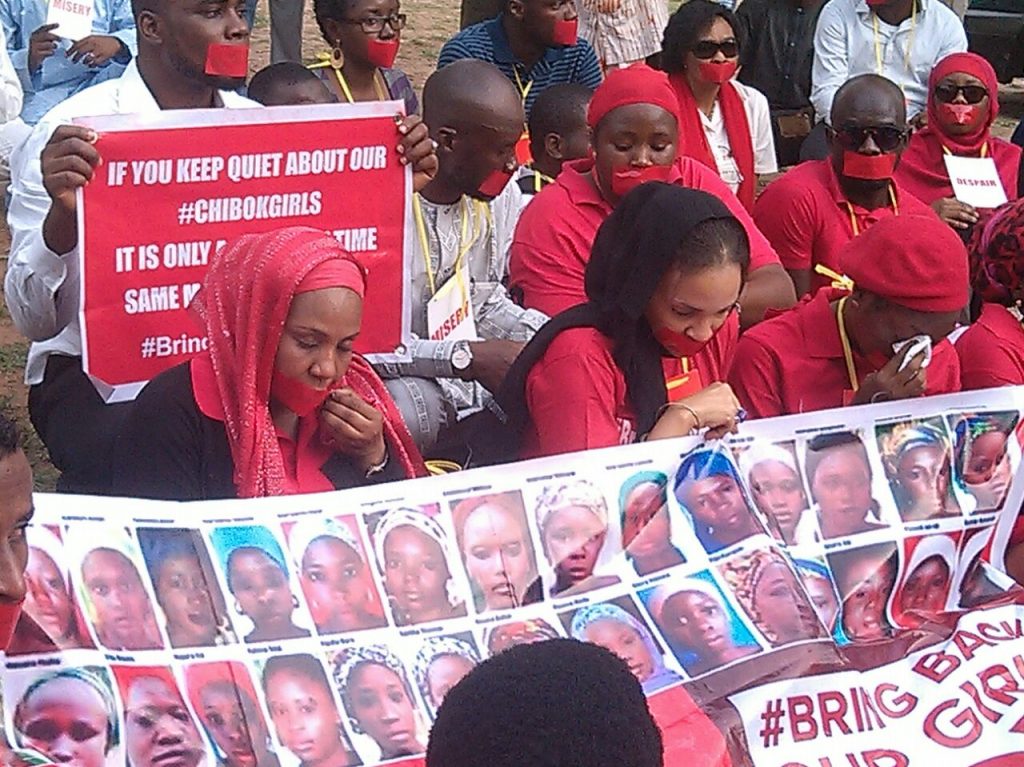
It is 365 days today that the Chibok Girls were abducted. Exactly one year ago on 14th April 2014 276 Chibok School Girls were abducted from their school. I just cannot believe the fact that we actually allowed it to get to one year without the rescue of our #chibokGirls. How could we allow innocent children be taken away by terrorist group and do nothing. The #ChibokGirls ought not to have been taken in the first place. They were supposed to be protected to enjoy their Childhood and their innocence. We failed to protect them and also failed in the next best thing which would have been their immediate rescue. How can we live with ourselves? How do we live with our consciences? How do we face ourselves in the mirror knowing fully well that we abandoned 219 #ChibokGirls and left them with the terrorists.
What is the crime of #ChibokGirls? Is it because she is Nigerian? Is it because she is poor? Or is it because she dared to be educated? #ChibokGirls against all odds dared to be educated and on April 14th 2014 they paid for daring. A group of armed terrorists entered their school and abducted 276 of them from their school in Chibok. 57 of them escaped on their own and there are still 219 of them still with the abductors for a year today, and not a single one has been rescued. The armed terrorists group known as Boko Haram, literarily meaning that western education is forbidden, have vowed to get schools closed down and seem to be succeeding. For some children in the North Eastern States of Nigeria education has become truly forbidden as schools in some parts have been closed for over a year.
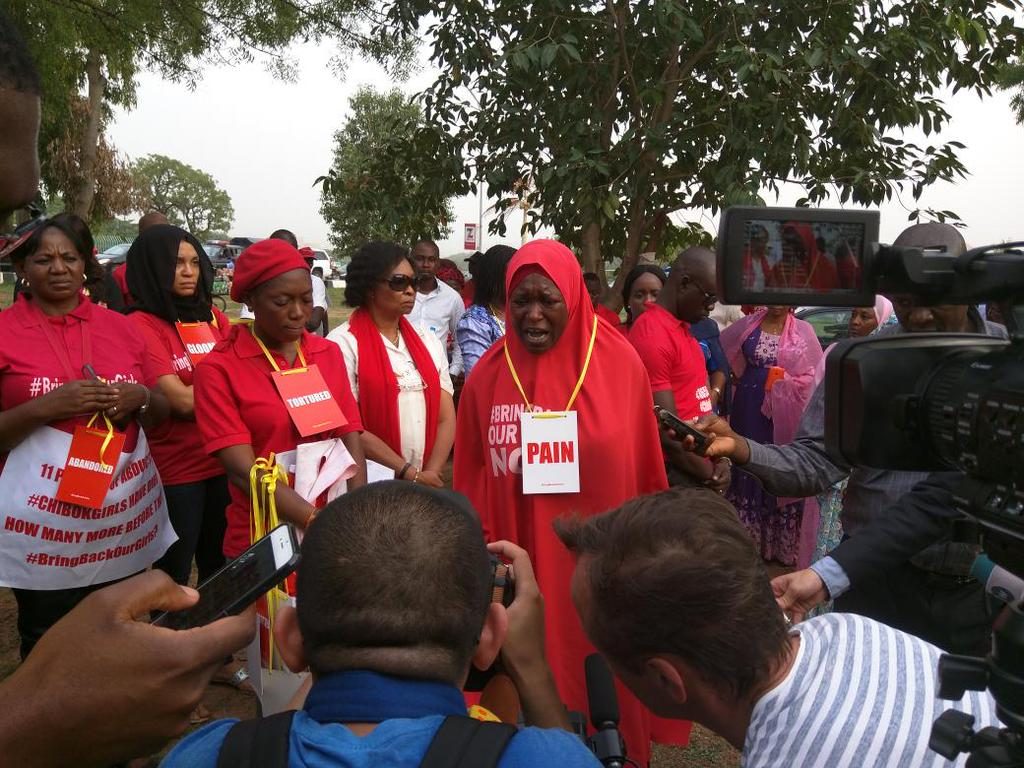
The #ChibokGirls were writing their Final year examination after which those who passed would be able to secure admission into University. A beacon of hope for their families. Schools had been closed down in neighbouring towns and a lot of parents sent their children to be able to complete their secondary school education in Chibok.
There had been series of attacks within some neighbouring villages and yet the #ChibokGirls went to school. Even those who were not boarders went to stay in school because there was electricity there and they wanted to have a place to read for their exams. Sheer determination to get an education which they knew would be their key to breaking the shackles of poverty. For the #ChibokGirl education meant everything. It was the path that could lead to an end to the vicious cycle of poverty. Like one of the #ChibokMothers said to us when we invited them to one of the Sit Outs we had, said her daughter had promised to go to school to get an education and wipe away her tears. The mother asked us; “If my daughter is in the hands of terrorist how she will wipe away my tears?
For most of these parents their children are everything, including a future source of livelihood. What makes the #ChibokGirls issue so saddening is that a lot of children, especially the Girl-Child from the region of Nigeria they come from, hardly ever go to school. They are the most educationally disadvantaged and it takes a lot to get them to school, especially the girls.
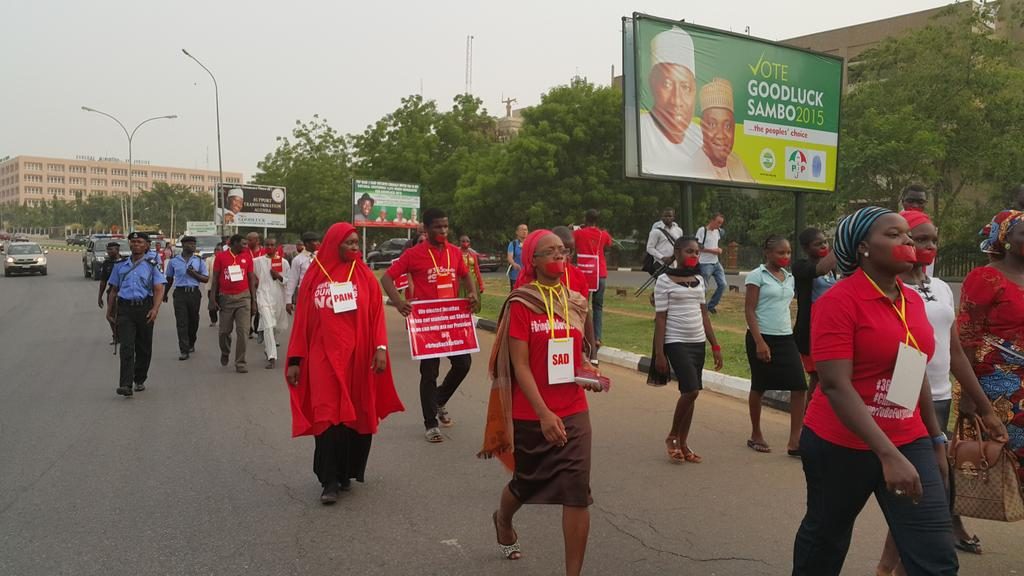
One of the #ChibokFathers put it this way: ‘The government fines us if we do not send our children to school. Now that our children have been abducted while in school who will fine the government?’ A #ChibokFather wept at the Unity Fountain in Abuja where we have the daily Sit Out to demand for the rescue of our #ChibokGirls when he told us the story of how his daughter was driven home because she had not paid 300 Naira (Less than 2 Dollars) for testimonial. He struggled for days to get the 300 Naira and when he was able to, he took her back to the school only for her to be abducted the very next day. I ask again! What is the crime of the #ChibokGirl? Is it because she is Nigerian? Is it because she is poor or is it because she dared to be educated?
If these are crimes many of us would be guilty. I grew up poor in an environment where education was not seen as important.
I went to school in the morning without breakfast and came back home without expecting lunch.By the time I was aged 11, I had no friends to play with because they were all married off. I was taunted and ridiculed and what kept me going was the thought that if I am able to get an education I would one day be able to ride a car and escape the life of poverty I was born into. At the age of 24 when I got married my friends were grandparents, and by the time I turned 40 they had become great grand parents.
Anytime I think of the fact that if I was taken when I was writing my exams my parents would have been unable to speak out for me because poverty had rendered them voiceless, and if nobody else stood for me where would I be today? Probably dead! With that in mind I can never give up on the #ChibokGirls because to give up on them is to give up on the who I was 24 years ago.
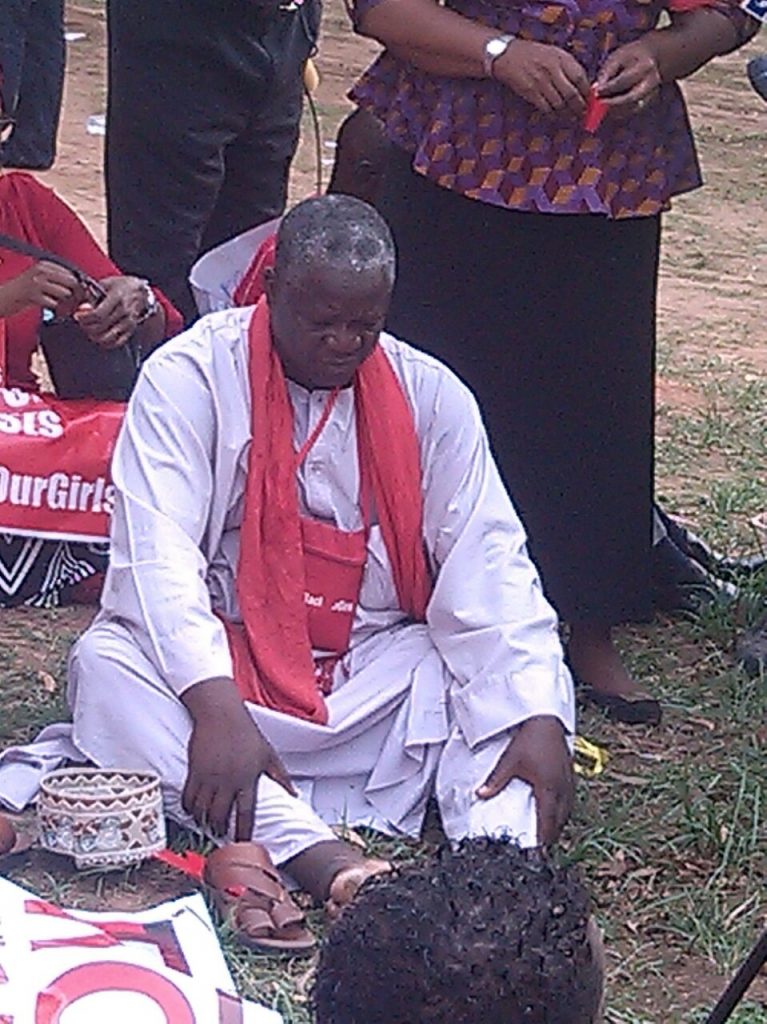
The #ChibokGirls with all the disadvantage they were born with decided that they would dare to take themselves out of the station that they were born into, and for daring to dream have been with abductors for a year. The world seems to have turned its back on the #ChibokGirls. The world seems to move on after the initial flurry of activity with the world saying #BringBackOur Girls. It was glamorous for people to hold the banner and say #BringBackOurGirls in the early days. People have moved on with their lives but for the #ChibokGirls and their families there is no moving on, not for a second for 365 days. Today it is exactly one year. My daughter has volunteered to be a #ChibokGirl Ambassador who would stand for the voiceless #ChibokGirls here in Abuja, and make demands that the government rescues the #ChibokGirls. This is what she had to say:
I see my parents every day and I feel guilty because 219 school girls haven’t seen their parents for one whole year. They live in fear of not knowing what is going to happen next whether they would live to see the next second, the next minute, the next hour, the next day. They have lost all hope especially in their country.
I feel sad that I live in a country, where 219 girls would be abducted and kept in captivity for 365 days and yet nothing is done, yet no attempt is made to rescue them, and everyone just moves on as if nothing ever happened. Why? They are kept in the hands of monsters that go around killing people and think they are practicing Islam, but Islam is a religion of peace not violence.
What if it were I that was abducted will everyone just move on and forget about me.
Bring Back Our Girls Now And Alive.
As long as the #ChibokGirls are left with abductors we have failed the children of the world especially the Girl-Child whom we tell is important and that she should dare to dream. Action, they say, speaks louder than words. The Girl-Child knows that it is all a lie because she can see the #ChibokGirls who dared and what happened to them.
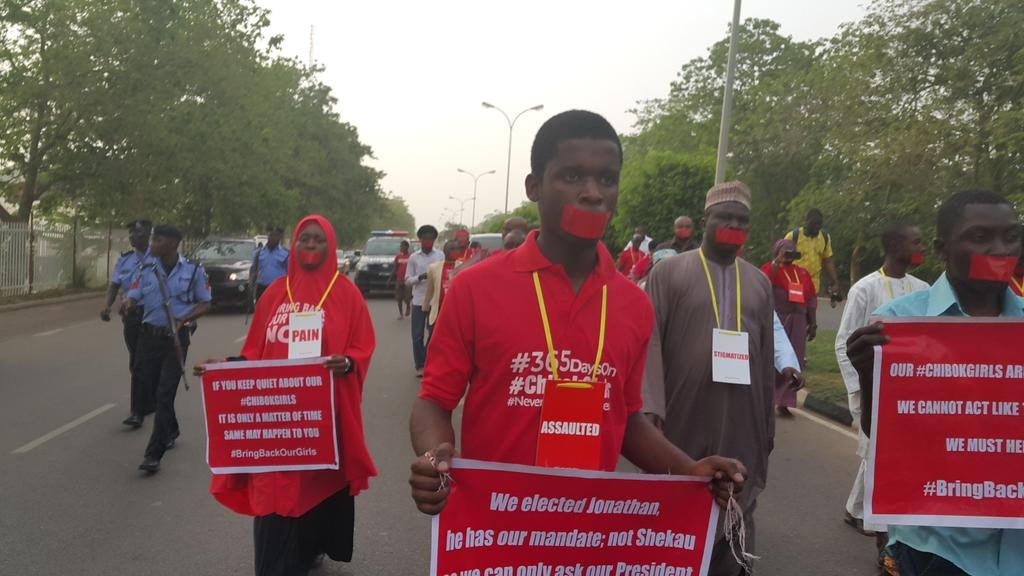
By failing to rescue the #ChibokGirls we have failed children all over the world. We have allowed terror be what they go to school expecting could happen to them, and this is not how it should be.
Due to what has happened to the #ChibokGirls and many others in that region a lot of parents are refusing to send their children to school where they are still open, and some are saying they would not send their children even when schools are opened. No parents should be made to choose between sending a child to school or their safety.
Work needs to be done to ensure that parents do send their children to school, lest the terrorist will have succeeded with their ideology of western education being forbidden. We must remember injustice to one is injustice to all. Terrorist attack to one is terrorist attack to all. Terror attack to anyone anywhere in the world is terrorist attack to everyone everywhere in the world.
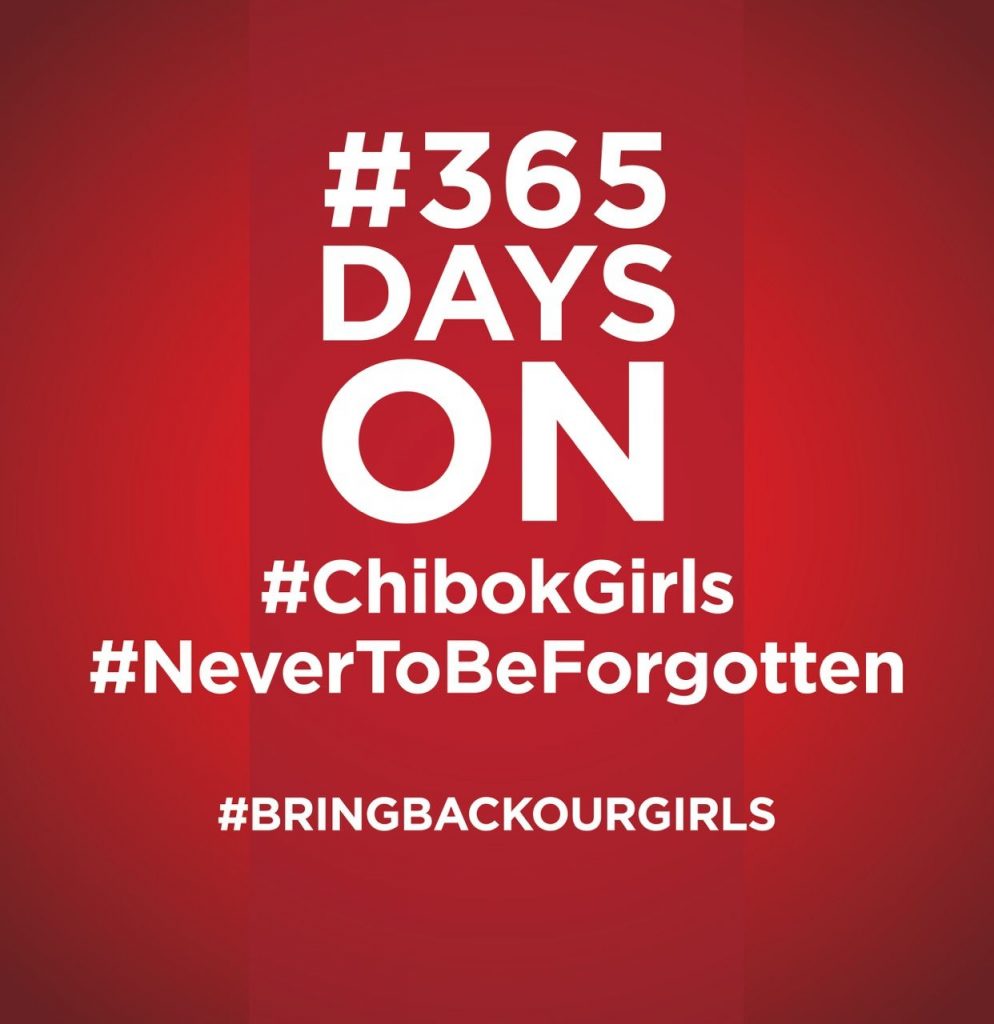
This is an original post written for World Moms Blog by Aisha Yesufu in Nigeria. All images provided by Aisha Yesufu.
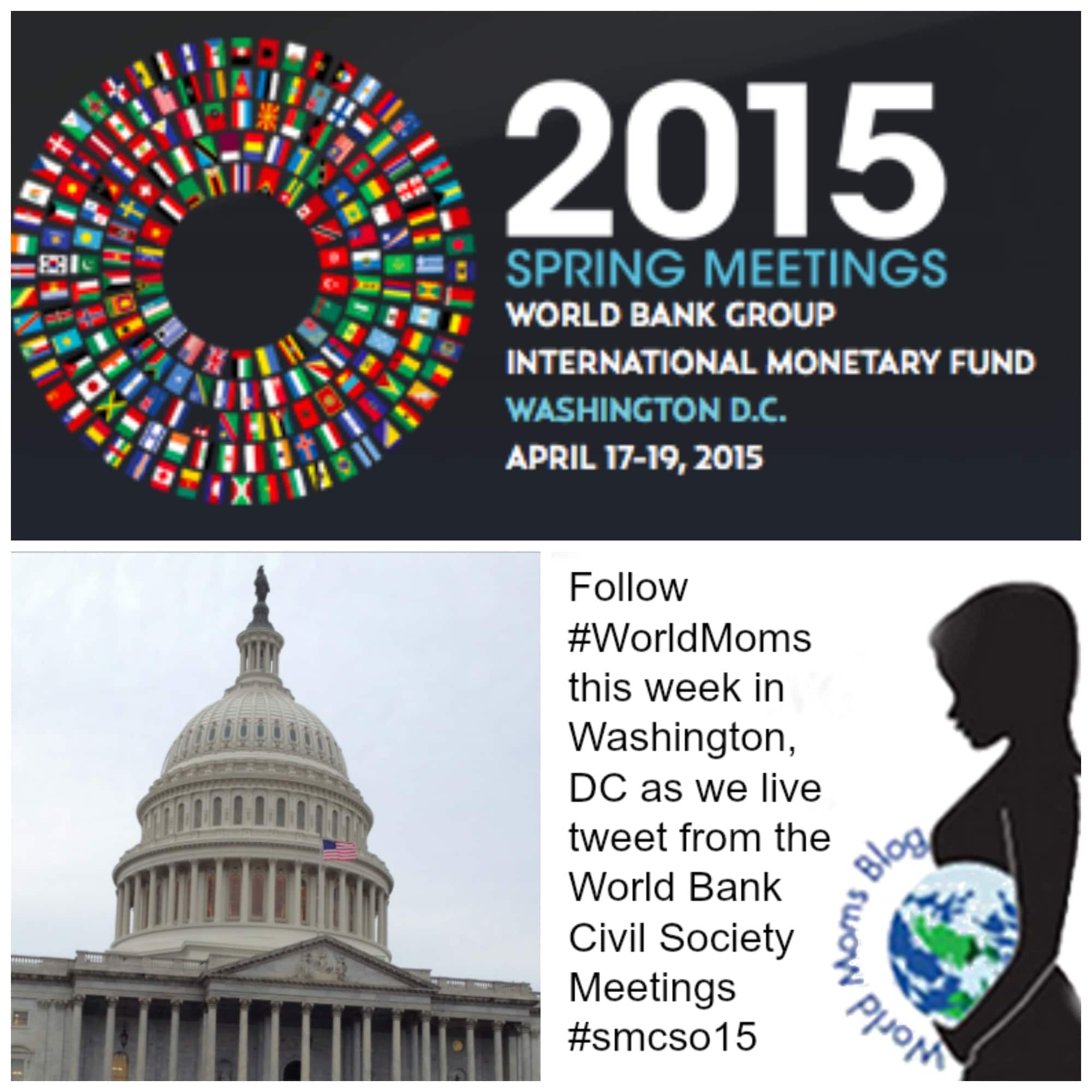
by World Moms Blog | Apr 13, 2015 | 2015, World Bank, World Moms Blog, World Voice
#WorldMoms at #WorldBank this week for #SMCSO15
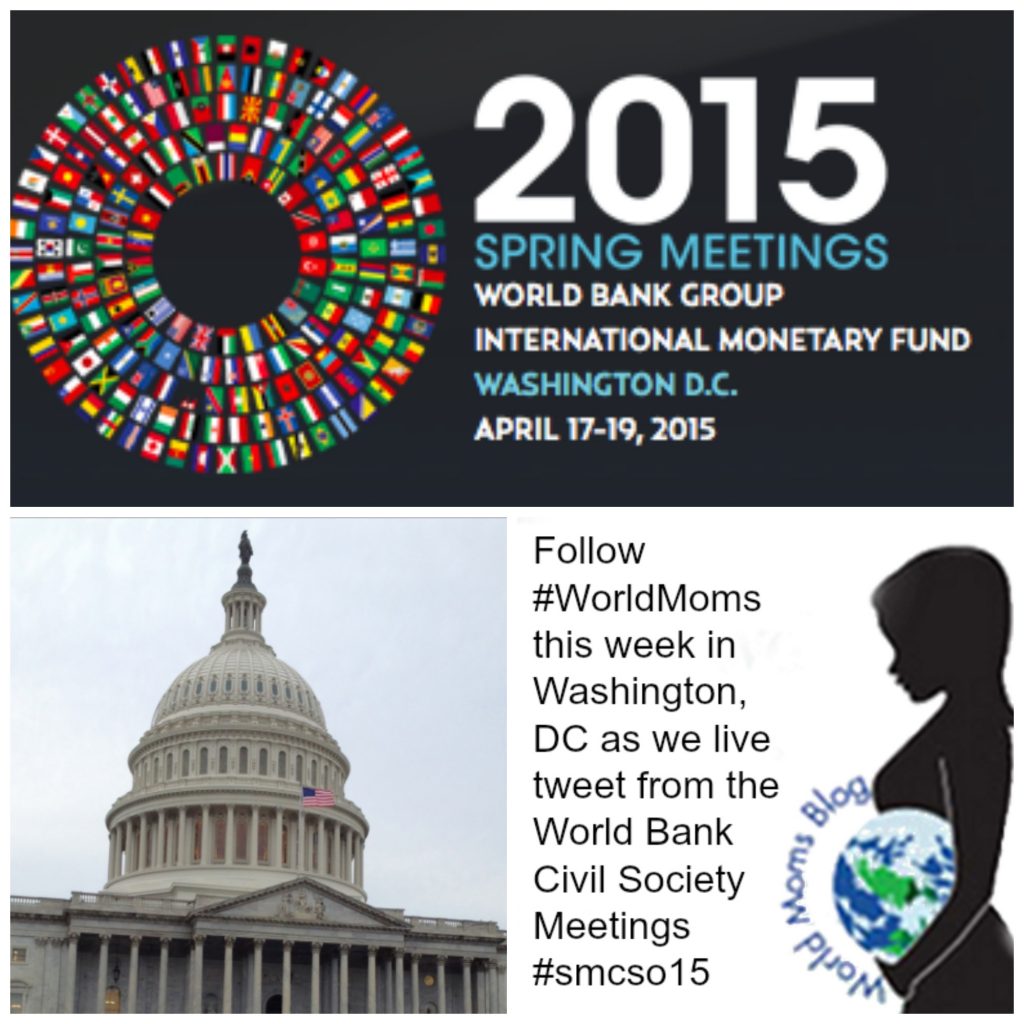 Fantastic news! Writers from World Moms Blog will be traveling to the World Bank Spring Meetings (#SM2015) in Washington D.C. this week to help spread the word about the ongoing dialog between citizens from Civil Society Organizations (CSO). World Moms Blog founder, Jennifer Burden, and contributor, Cynthia Changyit Levin, are thrilled to be headed back to the World Bank CSO meetings to represent moms around the globe concerned about the futures of ALL children no matter where they were born.
Fantastic news! Writers from World Moms Blog will be traveling to the World Bank Spring Meetings (#SM2015) in Washington D.C. this week to help spread the word about the ongoing dialog between citizens from Civil Society Organizations (CSO). World Moms Blog founder, Jennifer Burden, and contributor, Cynthia Changyit Levin, are thrilled to be headed back to the World Bank CSO meetings to represent moms around the globe concerned about the futures of ALL children no matter where they were born.
Civil Society meetings are bi-annual events hosted by the World Bank and the International Monetary Fund. Non-government organizations like UNICEFthe ONE Campaign, A World at School, and RESULTS send representatives to speak on panels to talk about development policies. Citizens from all over the world can join in and voice their opinions about the best ways to fight extreme poverty and speak out about how World Bank programs affect the lives of people in their countries for better or worse.
We’re honored to be lending our social media skills in a partnership that started at the 2014 RESULTS Conference when we met World Bank President Dr. Jim Kim and continued as we attended and blogged about the 2014 Fall CSO meetings. This spring, we’re returning to help the World Bank to engage in conversation with our audience of concerned moms on topics of importance to us as world citizens: Ebola, Education, Nutrition, and more. We’ll be live-tweeting flagship events and even hosting a panel discussion about social media and citizen activism to move the world toward education for all.
YOU can help take the meetings and the conversation about ending poverty far beyond DC! Please join the conversation by:
- Following the Twitter hashtag #SMCSO15 and the Twitter accounts of @WorldMomsBlog, @JenniferBurden, and @ccylevin so you can join in the conversation and re-tweet posts that you like using the #WorldMoms hashtag.
- Joining live-streamed webcast events (listed below) and leaving your questions/comments on the webcast page for the moderators! Each event has a hashtag so you can engage with the panel and audience through Twitter.
- Leaving a question for the World Bank in the comment section of this blog. We’ll try to ask it in the panel discussions and town hall meetings we attend or ask our contacts at the World Bank about it to get a response to you.
Here is the link to the full schedule of live-streamed webcast events. The list below calls out some of our favorites that we are most excited to attend. Pick one or more that interest you and join us virtually. You may even see us in the audience!
Date: Wednesday, April 15, 2015
Time: 9:00 a.m. – 10:00 a.m. ET
Join us for a live discussion where panelists will address the need for a new social contract to meet the demands of the current generation of citizens in the Middle East and North Africa.
Date: Wednesday, April 15, 2015
Time: 10:00 a.m. – 11:00 a.m ET.
Location: World Bank Group Headquarters, Preston Auditorium & Online
Can people of faith help build a movement to end extreme poverty? Can they seize this opportunity at a time of conflict in some regions — some of it driven by groups claiming religious justification?
Date: Wednesday, April 15, 2015
Time: 12:30 p.m. – 1:30 p.m. ET
How can Latin American governments stimulate growth while preserving social achievements? What growth levels will countries of the region achieve in 2015?
Date: Thursday, April 16, 2015
Time: 8:45 a.m. – 9:30 a.m. ET
World Bank Group President Jim Yong Kim will address the press during the World Bank’s 2015 Spring Meetings.
Date: Thursday, April 16, 2015
Time: 9:30 a.m. – 10:30 a.m. ET
Join us for a panel discussion on the importance of investing in nutrition; the challenges countries are facing; and concrete steps towards scaling up high-impact programming for child nutrition.
Date: Thursday, April 16, 2015
Time: 11:00 a.m. – 12:00 p.m. ET
Hear from a development banker, a renowned chef, an agricultural expert, a woman farmer, a culinary professional and others about the future of food, and how we can work together to feed the world.
Date: Thursday, April 16, 2015
Time: 2:00 p.m. – 3:30 p.m. ET
Join regional policy makers, practitioners and civil society representatives for a discussion on what it will take to instill adequate accountability and motivation among public servants and service providers toward meeting citizens’ needs.
Date: Thursday, April 16, 2015
Time: 3:30 p.m. – 5:00 p.m. ET
Water security is emerging as the number one global risk in terms of development impact. An expert panel will share their experiences and solutions for addressing water scarcity challenges with a view of the social, economic, and political implications.
Date: Friday, April 17, 2015
Time: 7:30 a.m. – 9:00 a.m. ET
WBG President Jim Yong Kim chairs this high-level roundtable at which the heads of state of Guinea, Liberia and Sierra Leone will present their Ebola recovery plans to finance and development ministers and international partners.
World Moms Blog is an award winning website which writes from over 30 countries on the topics of motherhood, culture, human rights and social good. Over 70 international contributors share their stories from around the globe, bonded by the common thread of motherhood and wanting a better world for their children.
World Moms Blog was listed by Forbes Woman as one of the "Best 100 Websites for Women 2012 & 2013" and also called a "must read" by the NY Times Motherlode in 2013. Our Senior Editor in India, Purnima Ramakrishnan, was awarded the BlogHer International Activist Award in 2013.
More Posts

by Karien Potgieter | Apr 10, 2015 | 2015, Cooking, Family, Food, Health, Kids, Motherhood, Nutrition, Parenting, Responsibility, South Africa, World Motherhood, Younger Children
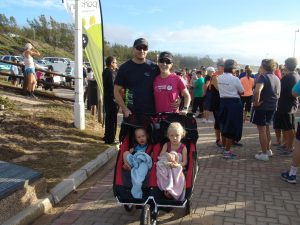 I’ve always enjoyed eating a healthy, balanced diet and exercising on a regular basis. Taking good care of the one and only body I’ve been entrusted with just feels good, and being able to run around and have fun with my family feels even better. During my first pregnancy, many moms warned me that my kids would never eat the healthy food that I keep in my house. Viennas, biscuits [cookies] and fish fingers would soon become our new household staples. “It’s all they’ll eat,” they said. I just shrugged, smiled, and refused to budge. How on earth have we come to believe that nutritious, delicious foods are somehow inferior to, or less tasty than, overly-processed, unhealthy products?
I’ve always enjoyed eating a healthy, balanced diet and exercising on a regular basis. Taking good care of the one and only body I’ve been entrusted with just feels good, and being able to run around and have fun with my family feels even better. During my first pregnancy, many moms warned me that my kids would never eat the healthy food that I keep in my house. Viennas, biscuits [cookies] and fish fingers would soon become our new household staples. “It’s all they’ll eat,” they said. I just shrugged, smiled, and refused to budge. How on earth have we come to believe that nutritious, delicious foods are somehow inferior to, or less tasty than, overly-processed, unhealthy products?
And since when are kids the dictators?
(more…)
Karien Potgieter is a full-time working mom of two toddlers. She has a master’s degree in ecology and works in the conservation sector in beautiful South Africa. Her other big passion, apart from her family and caring for the environment, is running. To date she’s participated in races on three continents and in six countries and she dreams of travelling to and running in many, many more. You can follow her and her family’s running adventures on her blog, Running the Race (http://www.runningtherace.co.za).
More Posts - Website
Follow Me:





 I start my morning here in Japan the same way every day: by cleaning out the drain trap.
I start my morning here in Japan the same way every day: by cleaning out the drain trap.













 Fantastic news! Writers from
Fantastic news! Writers from 







